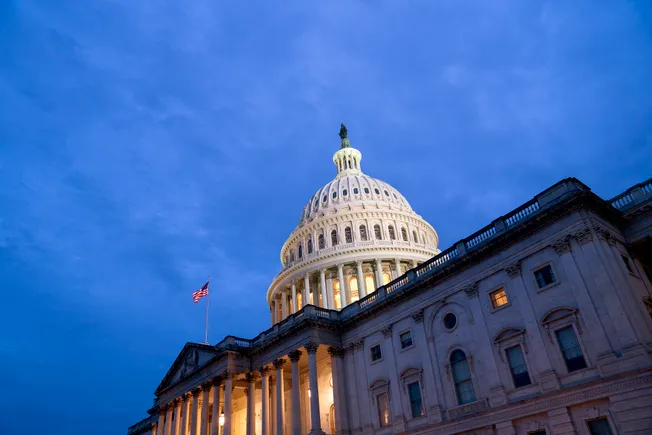The House Agriculture Committee advanced the Republican-led farm bill draft early Friday morning, although the massive $1.5 trillion spending package faces a tough road ahead as Democrats slam proposals that interfere with climate and food assistance funding.
The bill cleared the House committee on a 33-21 vote following a raucous 14-hour hearing. Democratic amendments to claw back Republican proposals around climate, the Supplemental Nutrition Assistance Program and the Commodity Credit Corporation failed on party lines.
Democrats have strongly opposed Republicans’ plan to fund key provisions in the farm bill. Among other things, the House proposal would move $27 billion from SNAP to trade promotion and specialty crop programs, plus shift close to $20 billion in Inflation Reduction Act funding for climate-smart agriculture to traditional conservation programs. It would also purportedly generate as much as $50 billion for commodity subsidy programs by suspending CCC discretionary spending power.
Rep. David Scott, the House Agriculture Committee’s top Democrat, called Republicans’ proposal “a terrible bill.”
“This bill is misguided,” he said in opening remarks. “And in some respects, it is mean-spirited.”
Ultimately, the bill advanced with the support of four Democrats, all of whom are facing tough elections this November. Nonetheless, the chances of approving the farm bill before the Sept. 30 deadline are slim as the Democratic-led Senate makes it clear that the bill crosses a red-line on food assistance and climate funding, and will be voted down.
“Despite areas of common ground, it is now clear that key parts of the House bill split the Farm Bill coalition in a way that makes it impossible to achieve the votes to become law,” Senate Agriculture Committee Chairwoman Debbie Stabenow, who has released a competing farm bill proposal championed by Democrats, said in a statement. “And it is also clear that we do not have time to waste on proposals that cannot meet that goal.”
Democrats say that Republicans have vastly overestimated the amount of savings they will gain from proposals, which could lead to trouble when the bill heads to the Rules Committee, the last stop before a full House vote. For example, the Congressional Budget Office estimated savings from Republicans’ proposed CCC restrictions to be closer to $8 billion, not $50 billion.
Those discrepancies could incentivize far-right Republicans on the powerful Rules panel to hold up the bill further and add even more partisan amendments, according to Rep. Jim McGovern, top Democrat on the committee.
“Wait until the looney tunes on the Rules Committee get their hands on this bill,” McGovern said.
Although the bill was advanced largely intact, the Agriculture Committee was able to add on a number of smaller amendments, including a proposal strongly opposed by the hemp industry that would ban hemp-derived cannabinoids such as delta-8 THC.



